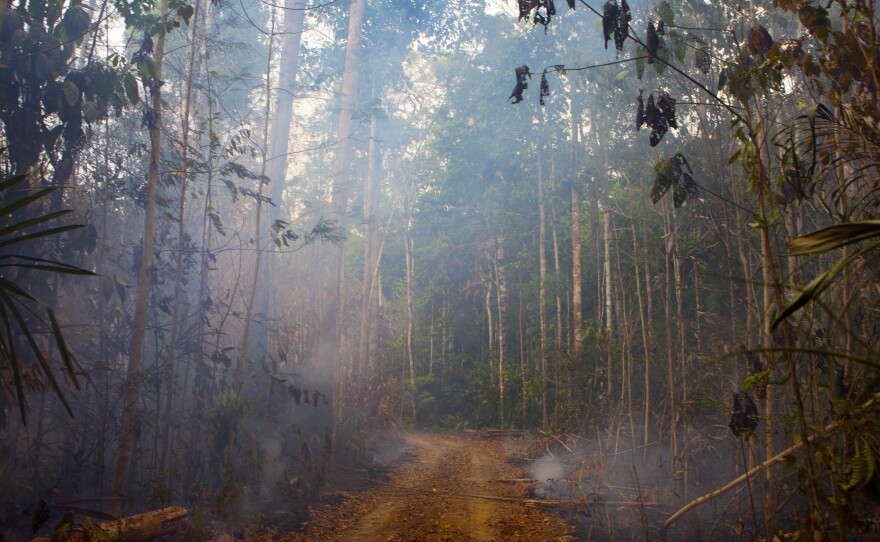
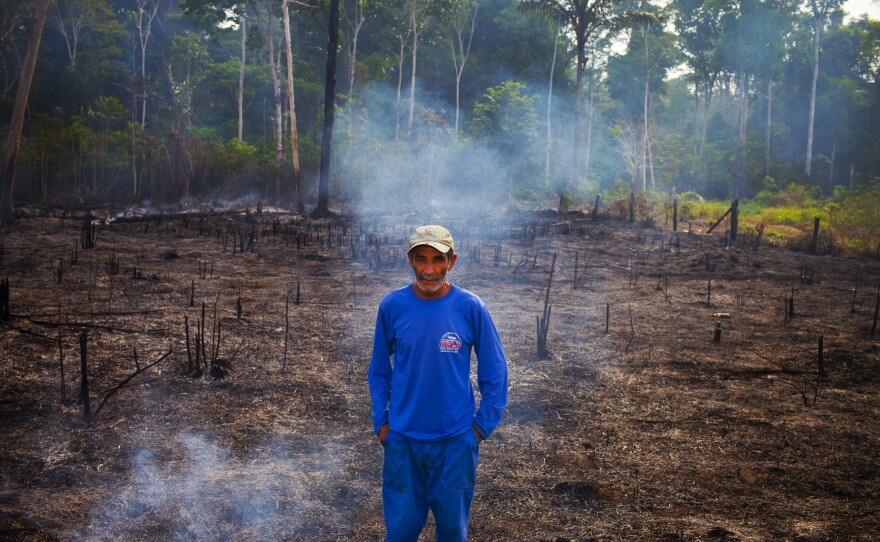
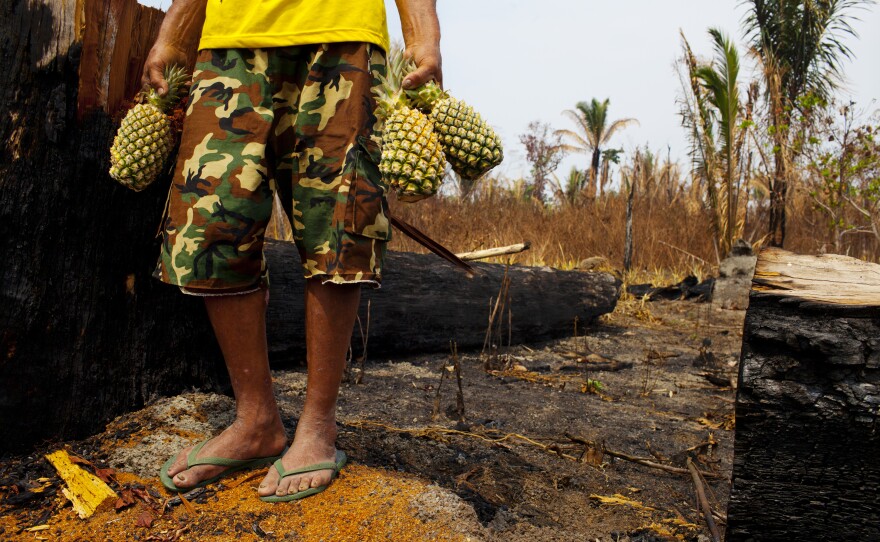
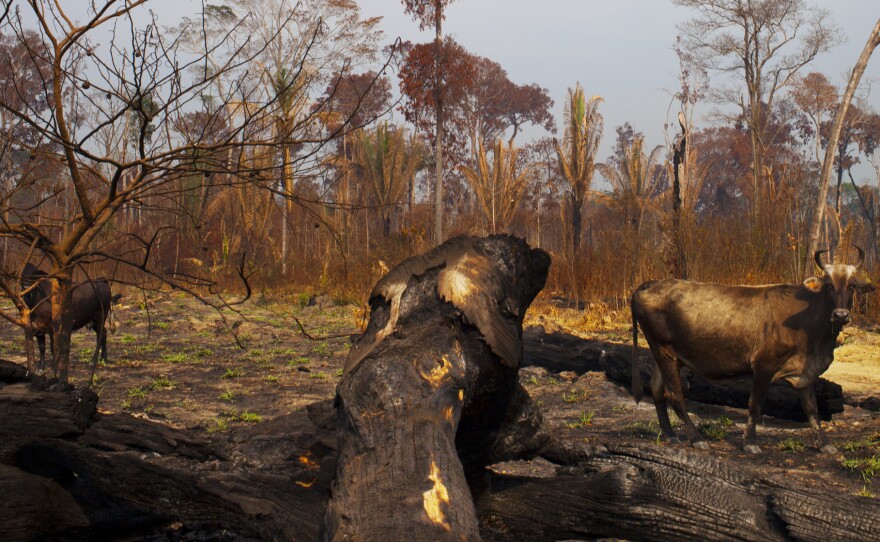
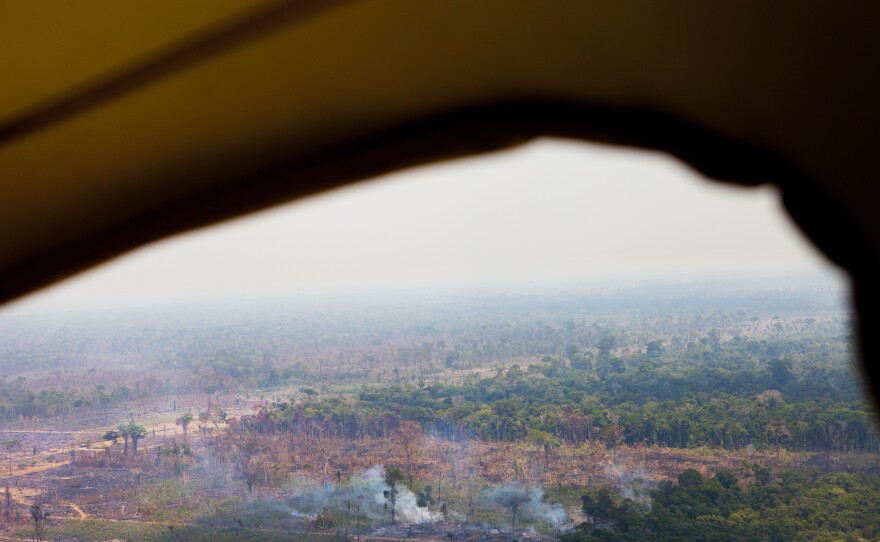
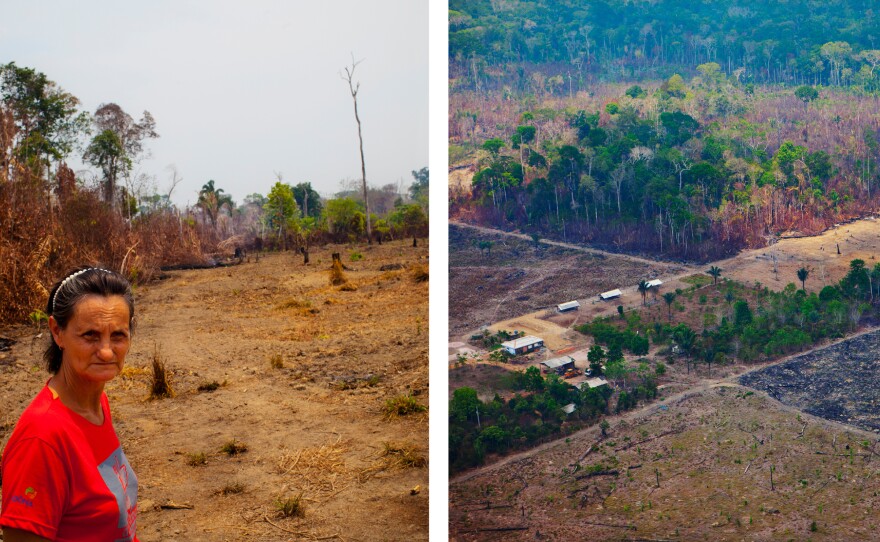
They call it the "burning season" in the Amazon, and when we arrive in Brazil's western state of Rondonia, it's on fire.
A thick, acrid smoke permeates everything, making it difficult to see. Fire, people say in Rondonia, is part of the culture of the state: the ash from the burned trees is the only way to make the land fertile, argue some. Others say fires are also started to simply clear land for cattle. Or to make space to build a house. Fire allows people to eke a living off the land in the rain forest.
Except it's an ecological and human disaster. The smoke causes respiratory problems. The fires often rage uncontrolled. They burn crops and virgin forest alike. They are also being used more often.
These man-made fires are up 30 percent from last year.
Among those burning their land to survive is Dona Maria Matara, a subsistence farmer.
She calls her purple home "the house at the end of the world." She lives in an isolated community of small farms on the edge of the forest. She says you have two choices in the Amazon: "You either burn or you starve."
This is how the forest gets eaten away today — the poor, like Dona Matara, are pushing civilization deeper into the wilderness, destroying the trees we all need.
Dona Matara is a deforester, but she is not a villain. You can listen to her story below.
Copyright 2015 NPR. To see more, visit http://www.npr.org/.






